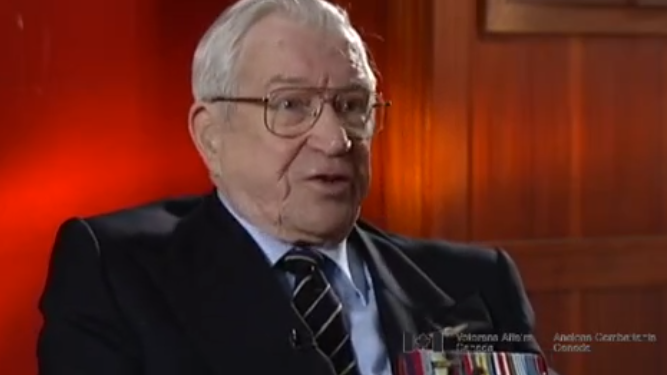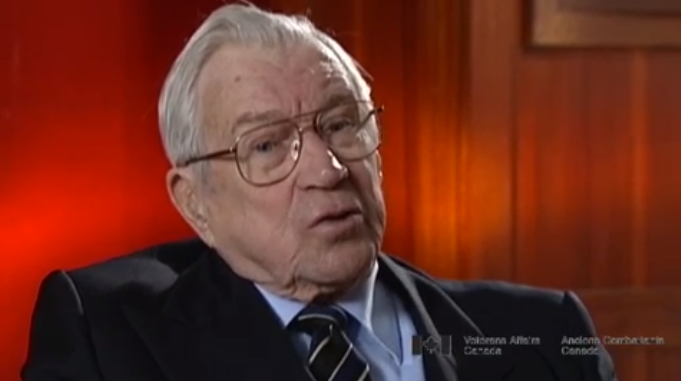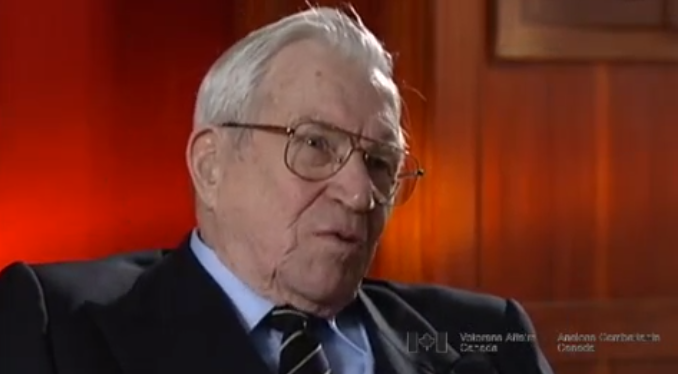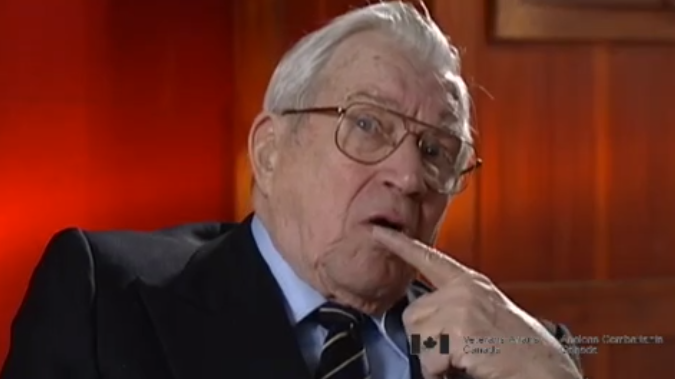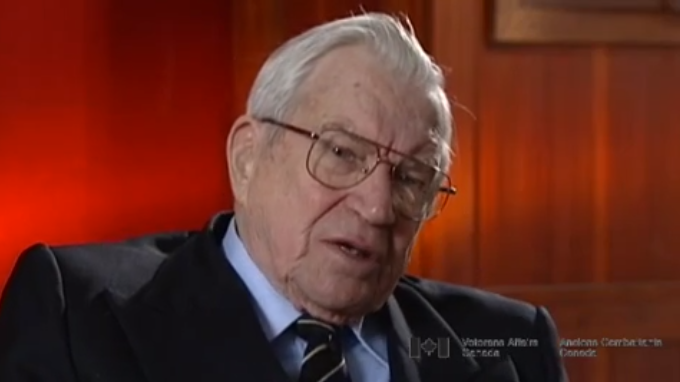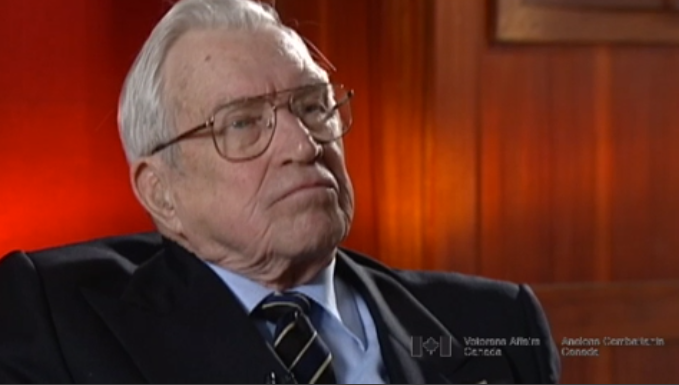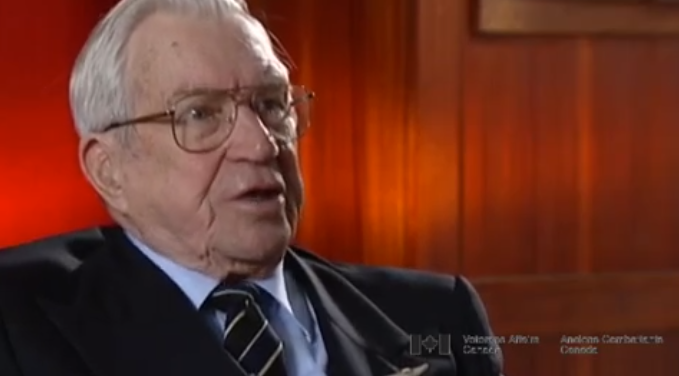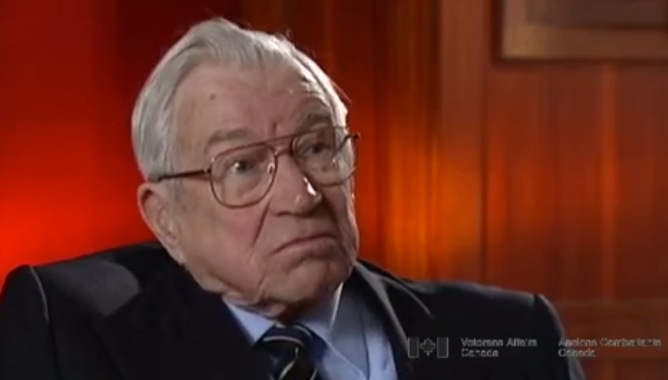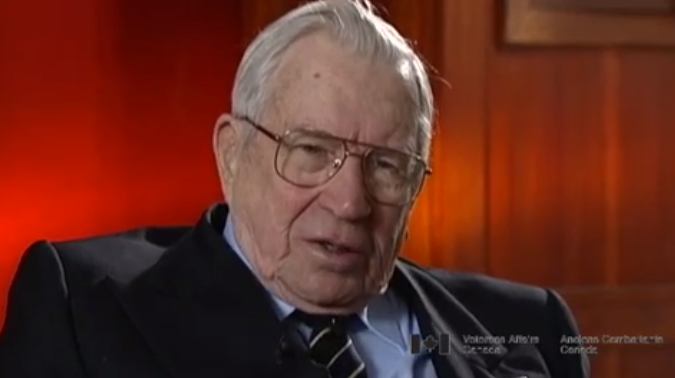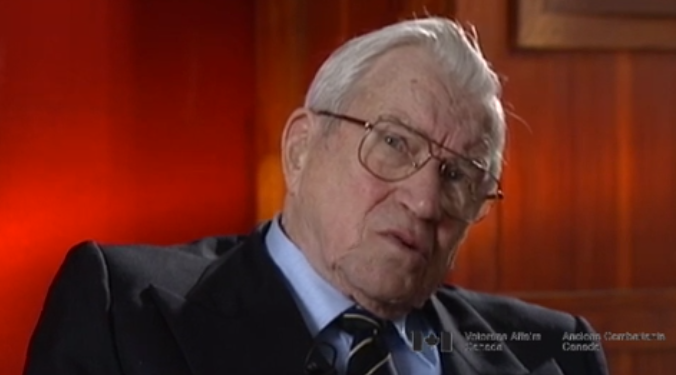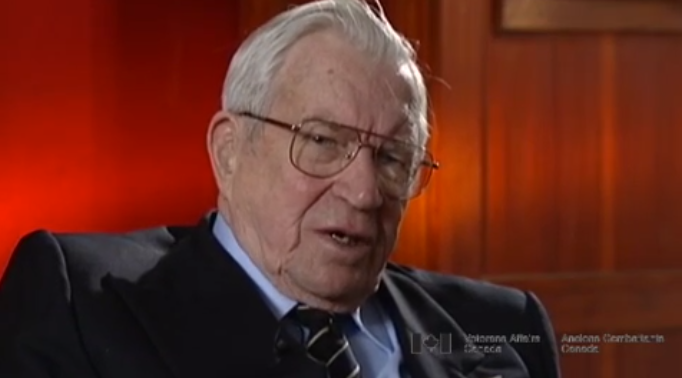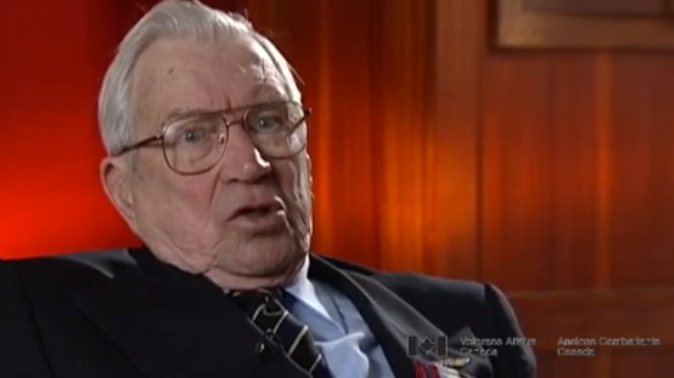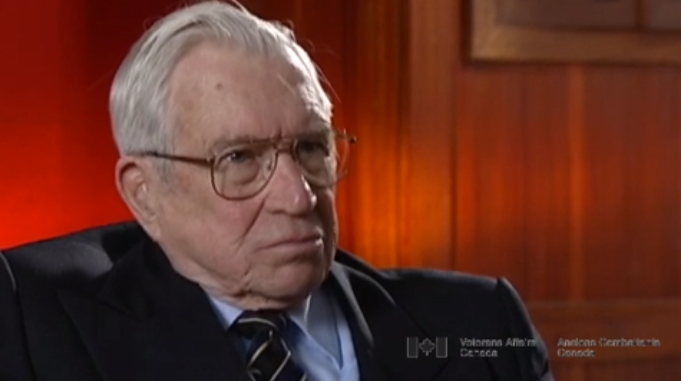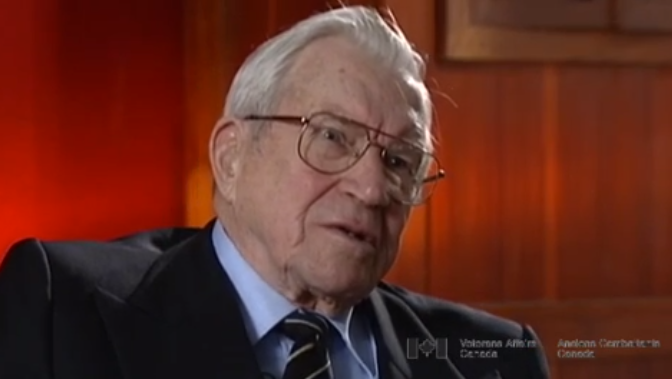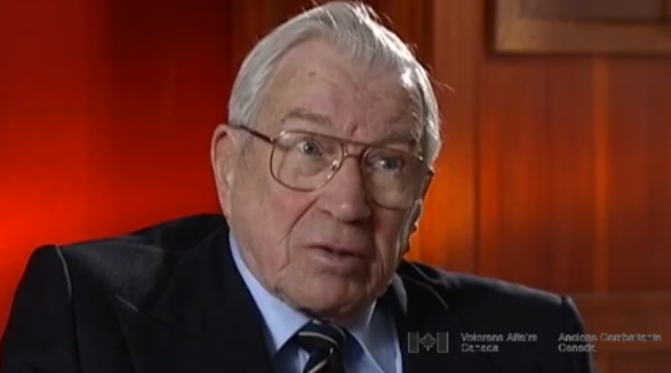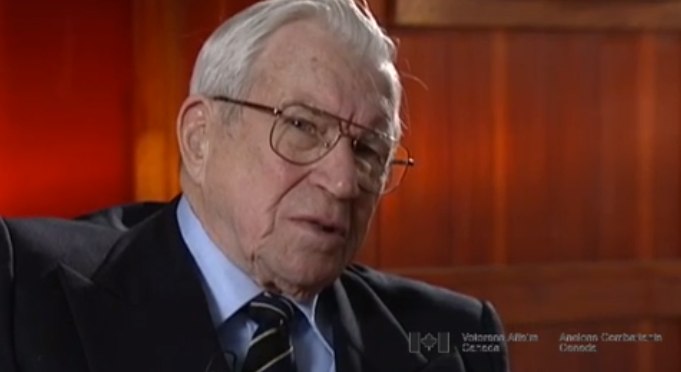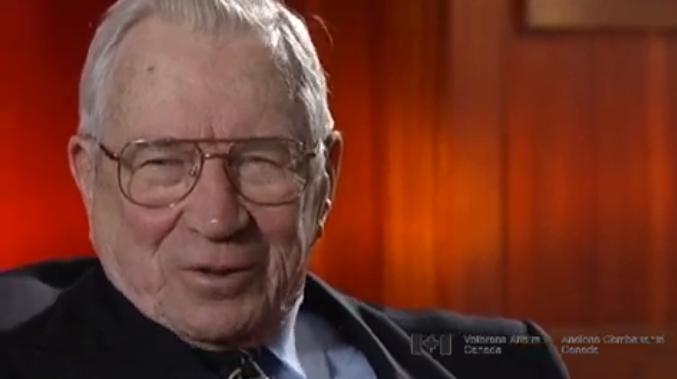Rescuing victims of torpedoed vessels
Heroes Remember
Rescuing victims of torpedoed vessels
Transcript
Massive dark flame rise into the sky.
huge ball of flame. And uh, it just stuns you, you know, dark night and suddenly everything is bright. And when you try to pick a seamen out of the water, one of the survivors, you know, they’d be covered with oil, and to try and hold ontoShips on fire and sinking.
them, it’s just so difficult. The whole sea would become a ball of, a mass of fire and these fellas got through theMen on small boat attempt to board a larger ship to escape the flames.
flames somehow, and we’re trying to pull them over the side, up onto the deck, and you would grab them, you know, and they would slip out of your hands. And probably the best way to hold on to them we found was to grab them by the hair. That must have hurt like hell, you know, and haul this fellow up but their bodies were so covered with oil it was just a greased pig affair really. We were lucky we had a medical officer on our ship and he and our sick berth attendant, another great guy, would work so hard on these people to try and bring them around, you know, but some of them died. Others, I guess came through all right. There were a lot of horrors there, we pulled a merchant seaman out of the sea one time. He was upright in the water, he had a life jacket on, I remember it had castanets clanking and banging, but the sharks had got at him from the waist down and just wasn’t anything there, you know, yeah. However, there were other good moments. We were at sea and coming back towards Canada and, December I guess it would be, of ‘45, and before we had left Newfoundland, which was our base on this side, we cut a bunch of Christmas trees and we had these set up on our mess decks and our electrical artificer made lights - ordinary bulbs but he painted them and we decorated them. But on the commodore’s ship, the lead ship in every convoy was what we called the commodore’s ship, he was the guy that had charge of the convoy, usually a retired admiral or something or other. And on that ship were a bunch of school children that we brought out to Canada so on Christmas Day we closed with this merchantman and we put a line across and we sent over one of these trees. The kids were so excited and that made us feel really good, really good, you know. You’re out in the middle of nowhere and we brought this bit of joy to the kids, you know.Description
Mr. Bowen describes the experience of seeing a ship torpedoed and the difficulty of rescuing oil-soaked survivors. He also describes two very emotional events, a terrible rescue and heartwarming Christmas gift.
Gerald Bowen
Gerald R. Bowen was born in Ottawa, Ontario on October 13, 1925. He attended Lisgard High School, and was a paperboy. His family had prior military experience. His uncle had served in the Air Force and his father in the Army, later becoming an historian with the Department of National Defence. Mr. Bowen enlisted in the Navy where he became a telegrapher, serving aboard a Royal Canadian Navy frigate on convoy duty in the North Atlantic until the war ended. He left the service for a brief time and re-enlisted in the Canadian Army, where he became a paratrooper and a specialist in sabotage. He later served as a peacekeeper in Cyprus. Mr. Bowen’s extensive experience in the Canadian military offers us some very informative and perceptive anecdotes.
Meta Data
- Medium:
- Video
- Owner:
- Veterans Affairs Canada
- Duration:
- 3:35
- Person Interviewed:
- Gerald Bowen
- War, Conflict or Mission:
- Second World War
- Location/Theatre:
- North Atlantic Ocean
- Battle/Campaign:
- Battle of the Atlantic
- Branch:
- Navy
- Rank:
- Ordinary Seaman
- Occupation:
- Wireless Operator
Related Videos
- Date modified:



